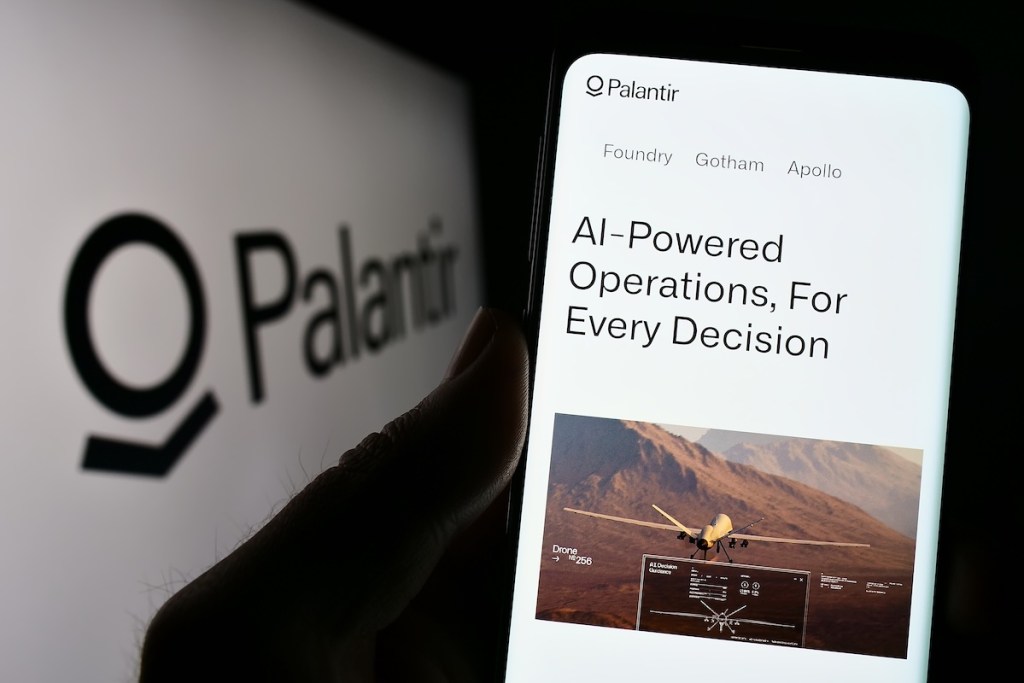This episode of the Skift Travel Podcast features an insightful conversation with Breno Helfstein Moura, the head of hospitality at Palantir. During this engaging dialogue with Editor-in-Chief Sarah Kopit and Head of Research Seth Borko, Moura explores various crucial topics about the intersection of data and travel.
Listen Now
🎧 Subscribe
Available on: Apple Podcasts | Spotify | YouTube | RSS
Five Key Insights from the Episode
Custom AI Solutions Are Essential: Off-the-shelf AI solutions are often a misconception. According to Moura, achieving true transformation in travel technology requires tailored integrations that address specific business challenges. Even implementations of standard systems like PMS (Property Management Systems) or ERP (Enterprise Resource Planning) often evolve into costly, protracted projects.
Emerging AI Trends Drive ROI: Key trends identified by Palantir in the travel and hospitality sectors include procurement, supply chain optimization, revenue management, and targeted marketing. These AI applications significantly enhance operational efficiency and yield impressive returns on investment.
AI as a Performance Enhancer: Rather than replacing human effort, AI acts as an amplifier of performance. For instance, collaboration between AI and skilled professionals can yield superior results compared to AI alone. However, AI will also reveal underlying flaws within a company’s culture and data; misalignment within the organization will be mirrored in AI’s output.
Leapfrogging Legacy Systems: The travel industry often assumes it must navigate outdated technology before adopting modern solutions. Palantir argues that travel companies can bypass these cumbersome processes, transitioning directly to integrated, state-of-the-art platforms that facilitate seamless operations and innovation.
AI Implementation is Already Transformative: Current viable use cases for AI in travel include revenue management and optimizing customer loyalty programs, showcasing how real-time data analysis can significantly improve business outcomes.
Episode Summary
Breno Helfstein Moura of Palantir discusses the company’s expanding influence in the travel sector with Sarah Kopit and Seth Borko. Traditionally viewed as a defense contractor, Palantir is now broadening its focus to commercial sectors like travel, where it utilizes its data integration and AI capabilities.
Although some regard Palantir as primarily a consulting firm, Moura clarifies that it is fundamentally a software company that provides tailored technological solutions. He also emphasizes the need for vigilant data access safeguards, especially in sensitive fields like hospitality, to ensure ethical use of AI.
In conclusion, Moura points out lucrative opportunities for return on investment in revenue enhancement and cost reduction. He sees the vast reservoir of underutilized, unstructured data within the industry as a goldmine ripe for exploration and exploitation, ready to drive significant advancements in travel technology.
Staying Ahead of the Next Wave of Change
Date: June 4, 2025 – Location: New York City
The Impact of AI on the Travel Industry: Insights from Palantir’s Breno Helfstein Moura
In a recent episode of a leading travel podcast, industry experts delved into the transformative role of artificial intelligence (AI) in the travel and hospitality sectors. Breno Helfstein Moura, the head of hospitality at Palantir, shared valuable insights on leveraging data to address complex challenges in travel, emphasizing the significance of customized AI solutions for effective industry transformation.
Understanding AI in Travel
Many businesses mistakenly believe that off-the-shelf AI solutions can drive significant change. In reality, effective transformation requires a nuanced grasp of each organization’s specific obstacles. This is particularly true in the travel and hospitality sectors, where integrated systems for property management or enterprise resource planning can become lengthy and expensive projects.
Driving ROI Through AI Trends
Palantir recognizes several key AI trends that are reshaping the operational landscape in travel and hospitality. Key areas include procurement optimization, supply chain efficiency, revenue and rate management, and targeted marketing strategies. These advancements are not only making processes more efficient but are also driving substantial returns on investment for businesses embracing them.
The Synergy Between AI and Human Expertise
Rather than replacing human capabilities, AI acts as a powerful enhancer. Similar to how chess grandmasters paired with AI can outperform standalone systems, professionals equipped with AI tools can achieve optimal performance. However, it is crucial to remember that AI can also mirror a company’s cultural or data-related issues, emphasizing the need for organizational clarity and alignment.
Breaking Free from Legacy Technology
The travel industry has often been bogged down by outdated technology solutions and cumbersome interfaces. Many firms operate under the assumption that they must transition incrementally through legacy systems before adopting advanced technologies. Palantir challenges this notion, asserting that travel companies can leap directly to modern, integrated platforms without the burden of outdated technology.
Transformative AI Use Cases in Travel
Several AI use cases are already making significant strides in the travel industry. For instance, advanced revenue management systems and loyalty program optimizations are not just theoretical; they are being actively implemented to enhance customer engagement and optimize financial outcomes for travel businesses.
Embracing Data for Future Innovations
Moura pointed out that the travel industry is sitting on a wealth of underutilized, unstructured data. This data represents a goldmine for innovation and improvement. By harnessing this information effectively, companies can unlock new revenue streams and drive cost efficiencies while ensuring responsible AI usage and data access protocols remain a priority in sensitive sectors like hospitality.
Conclusion
The conversation with Breno Helfstein Moura sheds light on the rapidly evolving landscape of AI in the travel sector. As companies continue to navigate changing technology, understanding the nuances of data integration and the significance of ethical AI usage will be pivotal. The future of travel lies in how well businesses can adapt to these technologies and leverage them for enhanced customer experiences and operational excellence.


